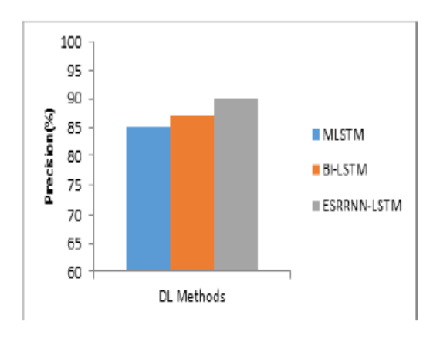


Indian Journal of Science and Technology
Year: 2024, Volume: 17, Issue: 3, Pages: 277-285
Original Article
A Sathya1*, M S Mythili2
1Research Scholar, Department of Computer Science, Bishop Heber College (Autonomous), Affiliated to Bharathidasan University, Tiruchirappalli, 620 024, Tamil Nadu, India
2Associate Professor, Department of Computer Applications, Bishop Heber College (Autonomous), Affiliated to Bharathidasan University, Tiruchirappalli, 620 024, Tamil Nadu, India
*Corresponding Author
Email: [email protected]
Received Date:05 October 2023, Accepted Date:28 December 2023, Published Date:20 January 2024
Background: The subject of why some people refuse to receive certain vaccines during an ongoing public health crisis is particularly relevant because low vaccination rates will prolong the time it takes for many countries to recover from the coronavirus disease 2019 (COVID-19) pandemic. Thus, the prediction of user opinion who is taking COVID-19 vaccinations plays a significant role. Existing classification methods has the issue of handling larger dataset, and it becomes increased time complexity. Deep Learning (DL) model is solution for analyzing user opinions with increased tweets, and produces better performance. Objective: The major objective of the work is to design a new methodology for the prediction of user opinion using DL. DL is used to predict the evolution of the user opinion to coronavirus vaccination. Findings: Covid-19 Twitter Dataset has been collected from Kaggle. It consists of 2,35,240, 3,20,316, and 4,89,269 tweets for first, second, and third phase. Results of proposed ESRRNN-LSTM classifier is compared with existing methods like Modified Long Short-Term Memory (MLSTM) and Bi-LSTM. Results of classifiers are measured in terms of precision, recall, f-score, and accuracy. Proposed system has the highest results in terms of accuracy of 91.20%, precision of 90.00%, recall of 88.00% and F-Score of 87.00%. The five fold cross validation has been also performed to classifiers. Novelty: this work is resulted in developing an Entropy State-Regularized Recurrent Neural Network- Long Short Term Memory (ESRRNN-LSTM) for vaccination prediction from user opinion tweets. Parameters of classifier are optimized using the entropy function.
Keywords: COVID19, Sentiment Analysis, Twitter, Deep Learning, Entropy State
© 2024 Sathya & Mythili. This is an open-access article distributed under the terms of the Creative Commons Attribution License, which permits unrestricted use, distribution, and reproduction in any medium, provided the original author and source are credited. Published By Indian Society for Education and Environment (iSee)
Subscribe now for latest articles and news.